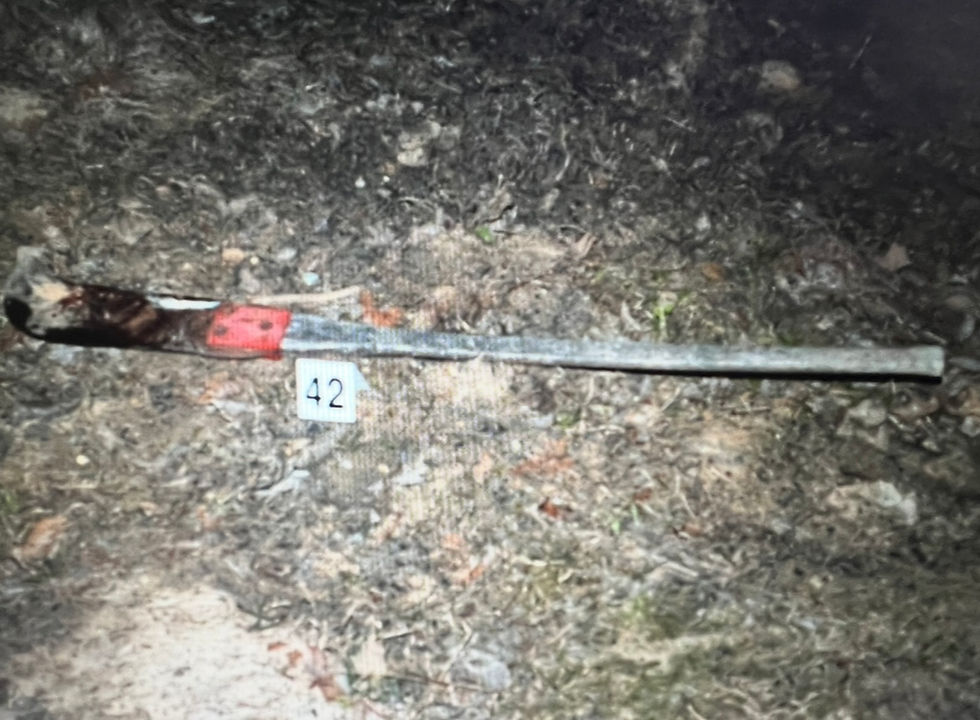The Reynolds–Taylor–Shirron Connection: Family, Politics, and the Question of Impartial Justice in Grant County
- jughead73
- Oct 12, 2025
- 3 min read

A Small Town with Deep Roots
In Grant County, Arkansas, family names aren’t just history—they’re power. They’re carved into headstones at Davis and Hedden Chapel Cemeteries, printed in obituaries printed in area papers, and appear again and again in courthouse filings and campaign rosters.
My research into the 1910 U.S. Census began as a search for genealogy. What I found instead was a living map of how intertwined family, politics, and the courts have become in this small community.
The Census That Proved It
At the very bottom of the 1910 Davis Township (Grant County) census, two names appear together: Ernest Taylor and Lewis Taylor—both listed as sons in the same household. That single record establishes beyond question that Ernest and Lewis were brothers.
Their lives unfolded along separate paths:
Ernest Taylor married Annie Reynolds, daughter of Cicero and Cynthia Swillings Reynolds.
Lewis C. Taylor married Rilza Anna Owens in 1932.
From those two marriages grew the Taylor–Reynolds lineage that now spans both sides of Grant County’s courthouse steps.
Two Families Become One
Ernest and Annie (Reynolds) Taylor raised children including Bruce Taylor (1926–2017) and Mae Taylor Barbre (1922–1995).
Lewis and Rilza (Owens) Taylor raised Shelby Lee Taylor, among others.
When Annie married Ernest, the Reynolds and Taylor lines fused by blood.That made Shelby Taylor, son of Lewis, first cousin to Bruce and Mae, and first cousin once removed to Edwin A. Reynolds, Annie’s nephew and the son of her brother Jack E. Reynolds.
Jack’s 2000 obituary confirms the connection:
“He was preceded in death by his wife Opel Reynolds … and two sisters, Annie Taylor and Ada Morris. Survivors include one son, Edwin A. Reynolds of El Dorado.”
From census to obituary, the paper trail is complete.
Shelby Taylor’s Line — and the Political Link
Shelby Lee Taylor, born and raised in Grapevine and a 1961 graduate of Grapevine High School, built a successful career in the trucking industry and still calls the Sheridan area home.
His son, Bobby Taylor, carries on the family’s local presence—and its political involvement.
Public campaign records and community sources show that:
In 2019 and 2020, Bobby Taylor served as Campaign Chairman for Judge Stephen L. Shirron,
And in 2025-2026, he again holds the position of Campaign Chairman for Shirron’s re-election effort.
These roles are publicly acknowledged and documented through campaign filings and community announcements.
Where Family Meets the Bench
Here is the ethical question:
Judge Shirron currently presides over matters involving Edwin Reynolds’s and his son—a direct descendant of the same extended family network to which Bobby Taylor belongs. Judge Shirron issued a Not Guilty by Reason of Insanity verdict in the Philip Reynolds case.
Under Arkansas Code of Judicial Conduct Rule 2.11(A):
A judge shall disqualify himself or herself in any proceeding in which the judge’s impartiality might reasonably be questioned, including but not limited to instances where a person closely associated with the judge’s campaign has an interest in the case.
Even without proof of personal bias, the appearance of bias can raise legitimate concerns about public confidence.
Here, the appearance deserves serious scrutiny:
The Reynolds and Taylor families share bloodlines.
Bobby Taylor, a member of that family, manages the judge’s campaign.
The judge appears to be presiding over a case involving that family’s kin.
That triangle—family, campaign, and courtroom—raises serious questions about compliance with Arkansas’s judicial ethics and about public confidence in the appearance of impartiality.
The Pattern Beneath the Surface
Some call this “just small-town life.”But when the same surnames appear on campaign filings, in courtroom dockets, and on family gravestones, the pattern of overlapping relationships deserves public scrutiny.
Grant County deserves judges who step aside when fairness could even appear compromised. Rule 2.11 isn’t optional; it’s the foundation of public trust.
A Matter of Record
Documents establishing the connection:
1910 U.S. Census – Davis Township, Grant County – Ernest and Lewis Taylor listed as brothers.
Rilza Owens Taylor Obituary (2004) – lists Lewis as husband and Shelby as son.
Jack E. Reynolds Obituary (2000) – names sister Annie Taylor and son Edwin A. Reynolds.
Public Campaign Disclosures (2019–2025) – list Bobby Taylor, son of Shelby Taylor, as Campaign Chairman for Judge Stephen L. Shirron.
Each record is verifiable and publicly accessible—no speculation required.
Why This Matters
When family lines cross campaign lines, justice demands transparency. Every citizen, from Grapevine to Sheridan, should be able to trust that court decisions are based on law, not lineage.
This is not an accusation—it’s a call for accountability. The paper trail itself tells the story.
Conclusion
Bloodlines built this county—but they should not be allowed to build its courtroom walls.
The Reynolds–Taylor family has shaped Grant County for over a century. Now, that same legacy tests the independence of its judiciary.
It’s time for sunlight, not silence.
If you believe transparency matters, share this post and demand accountability in every Arkansas courtroom.



Comments